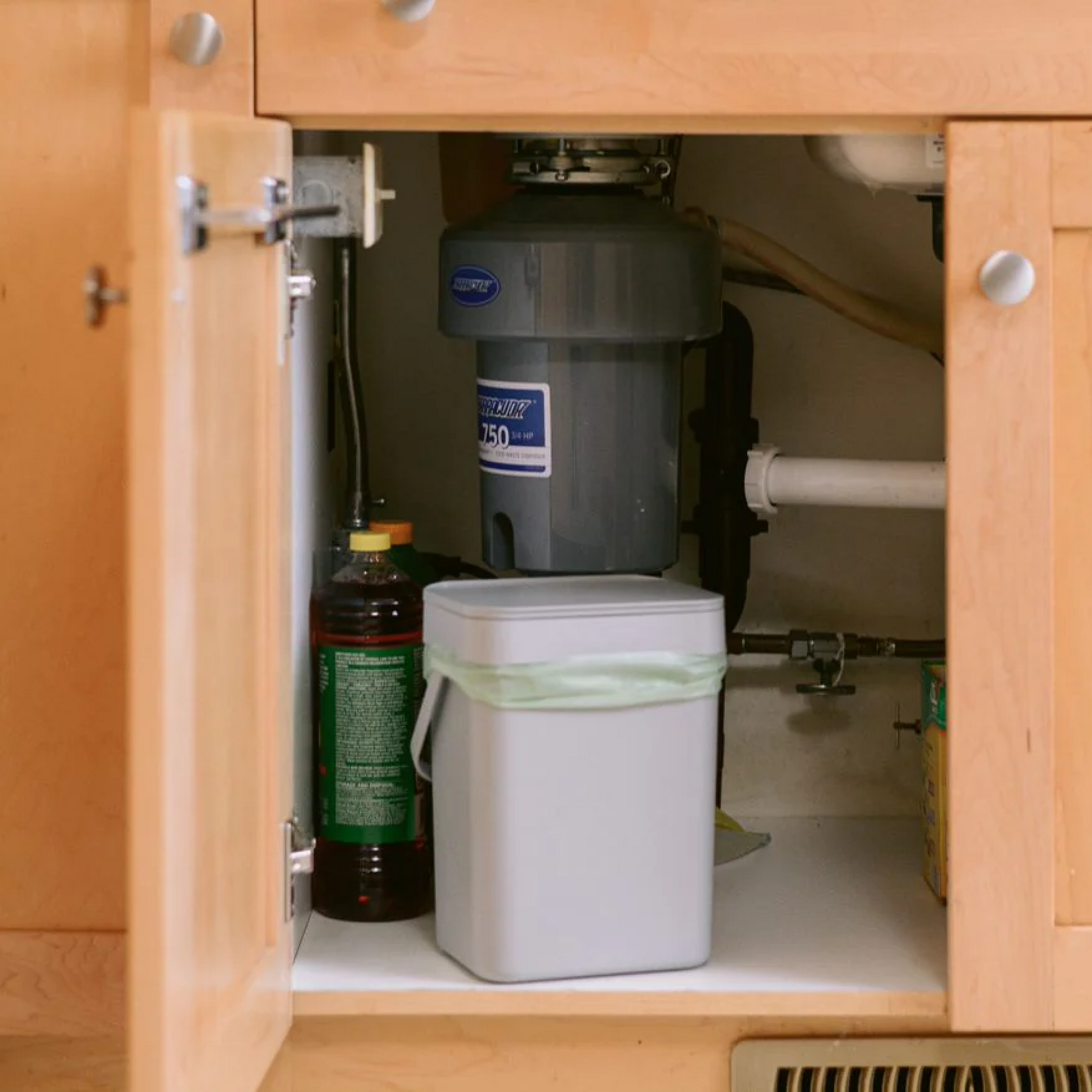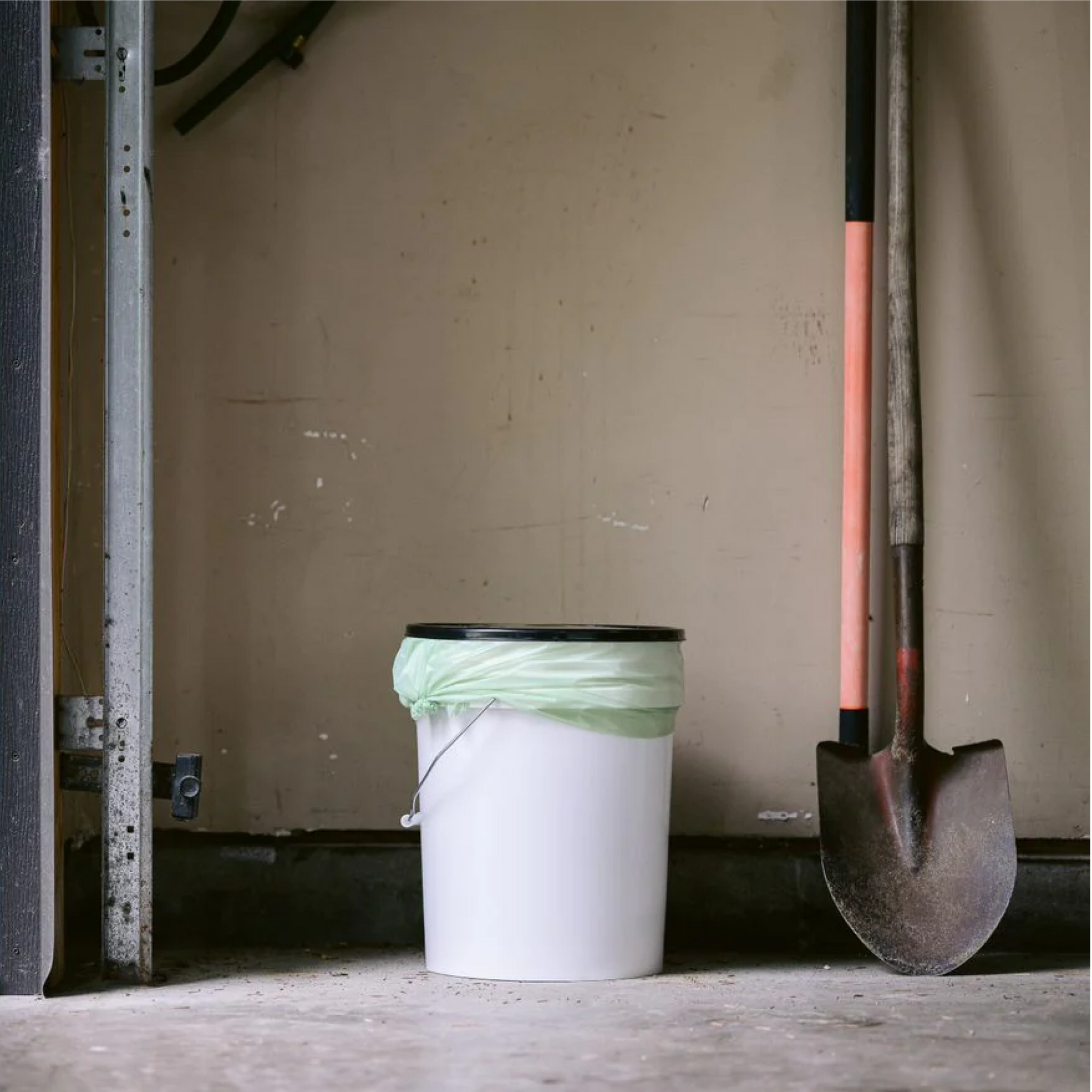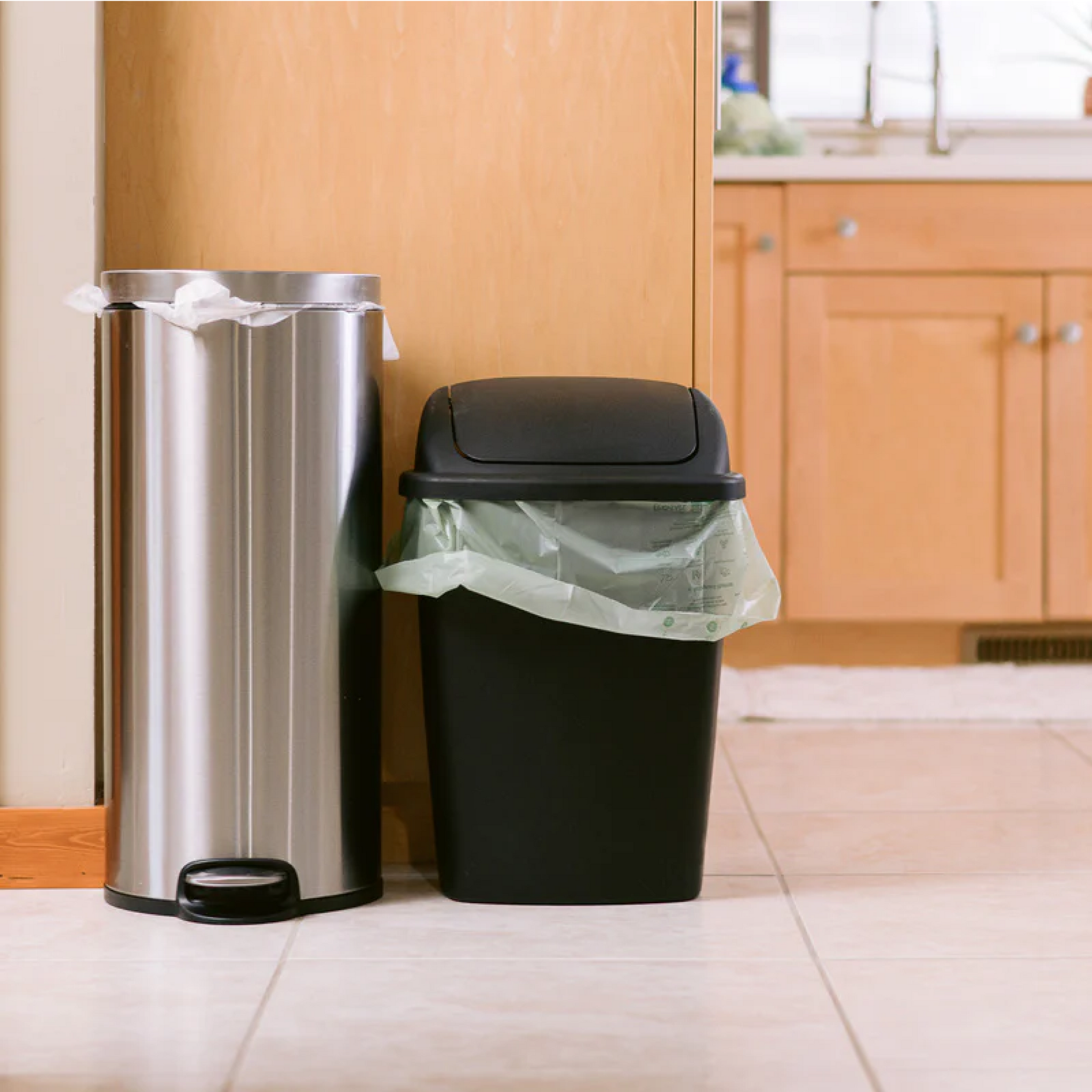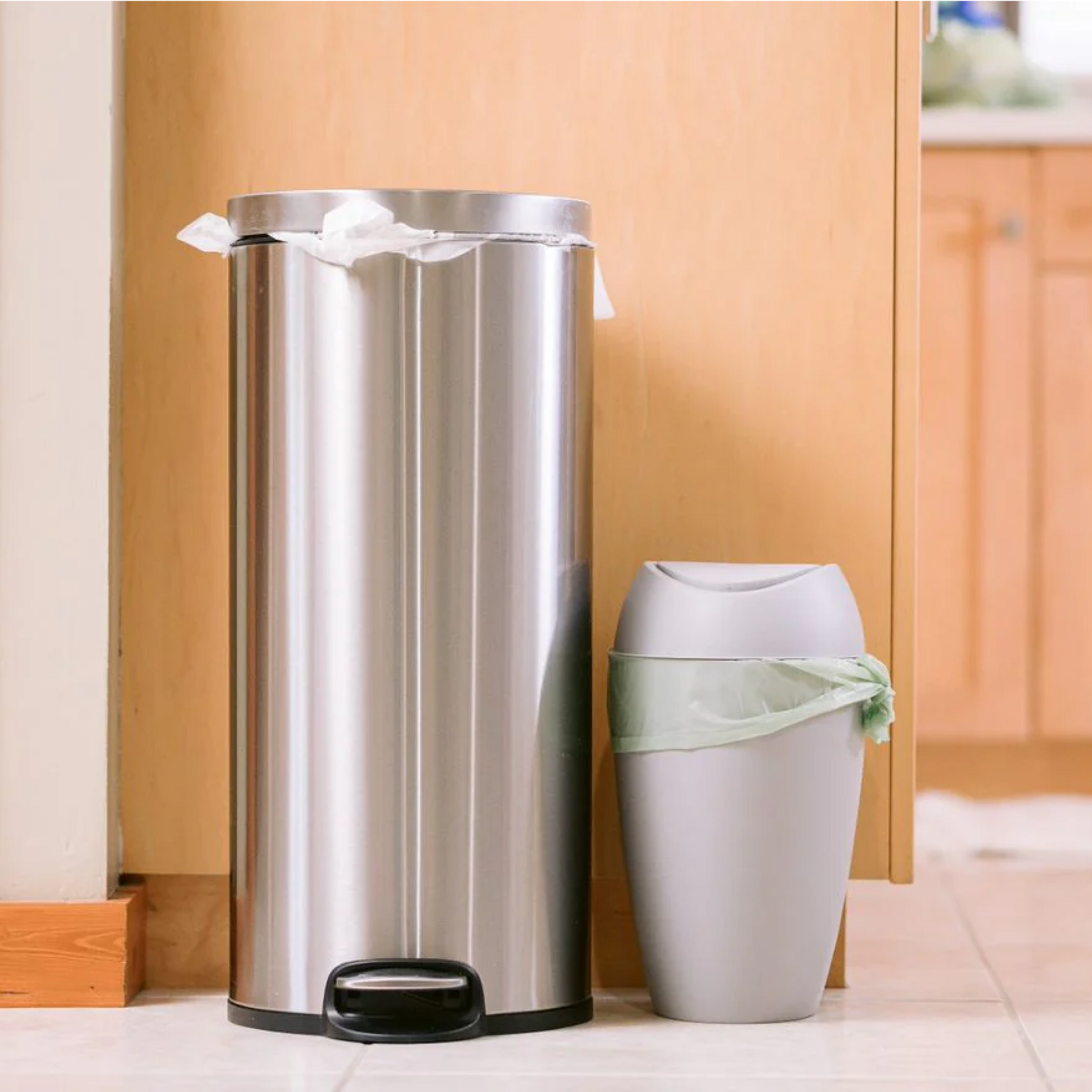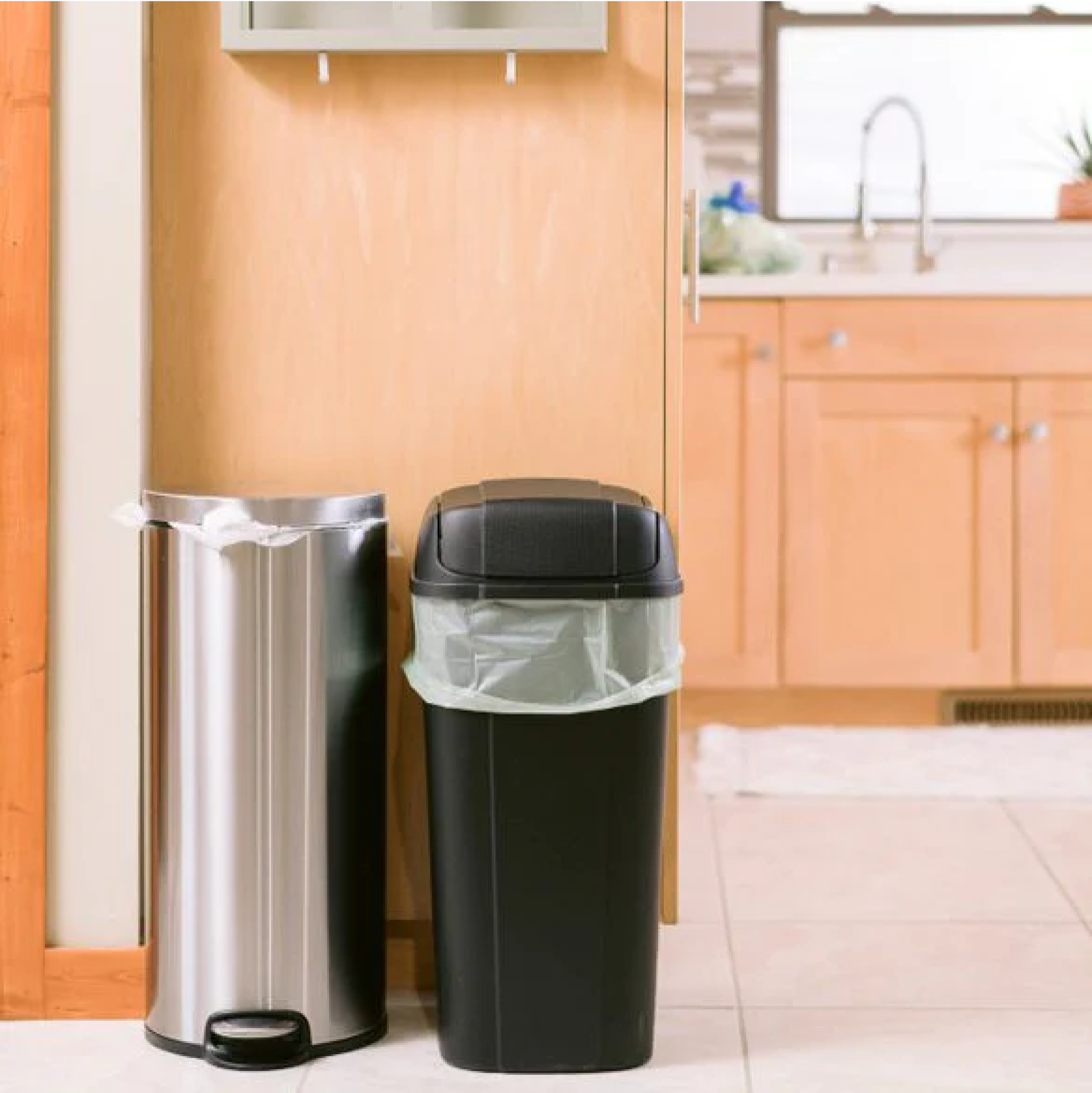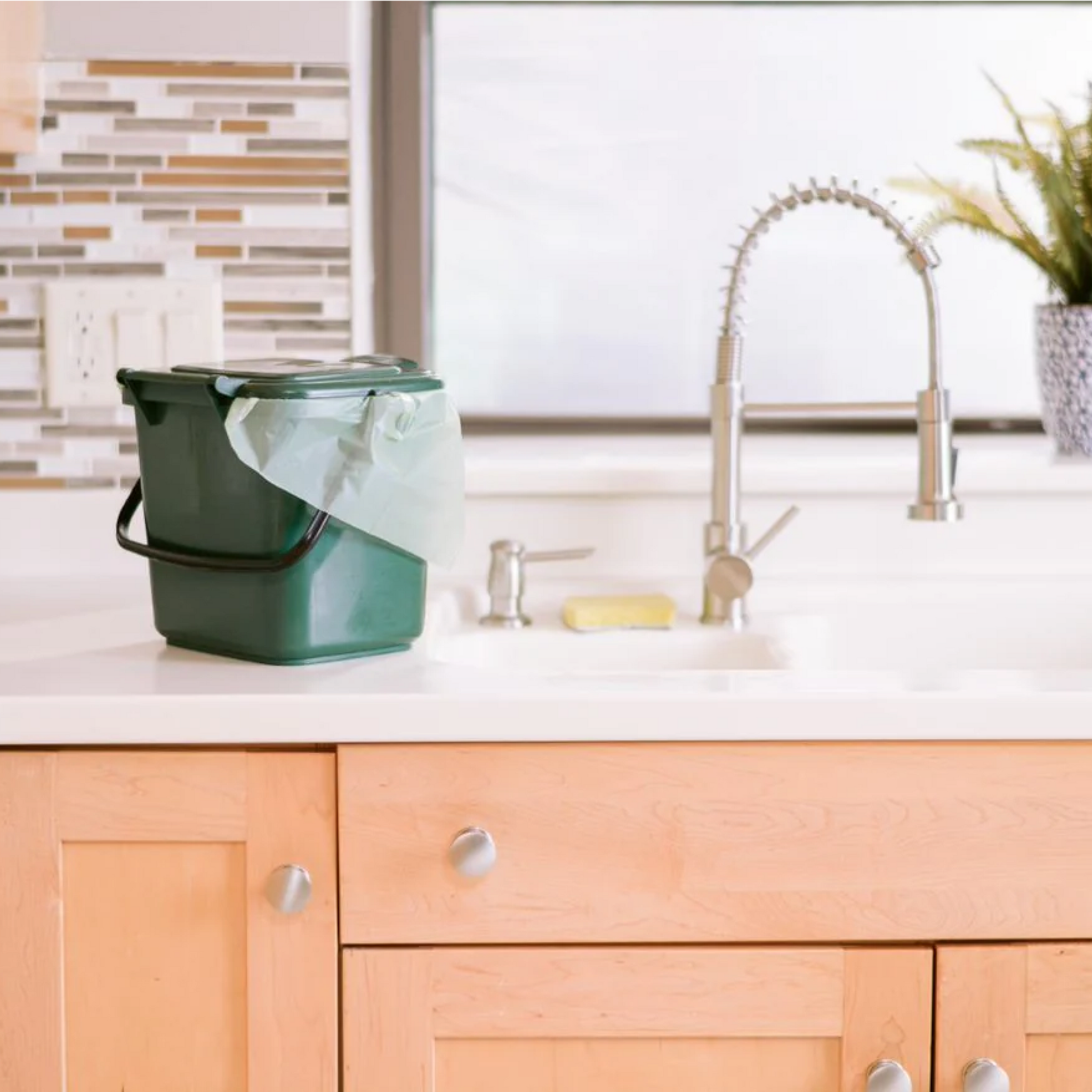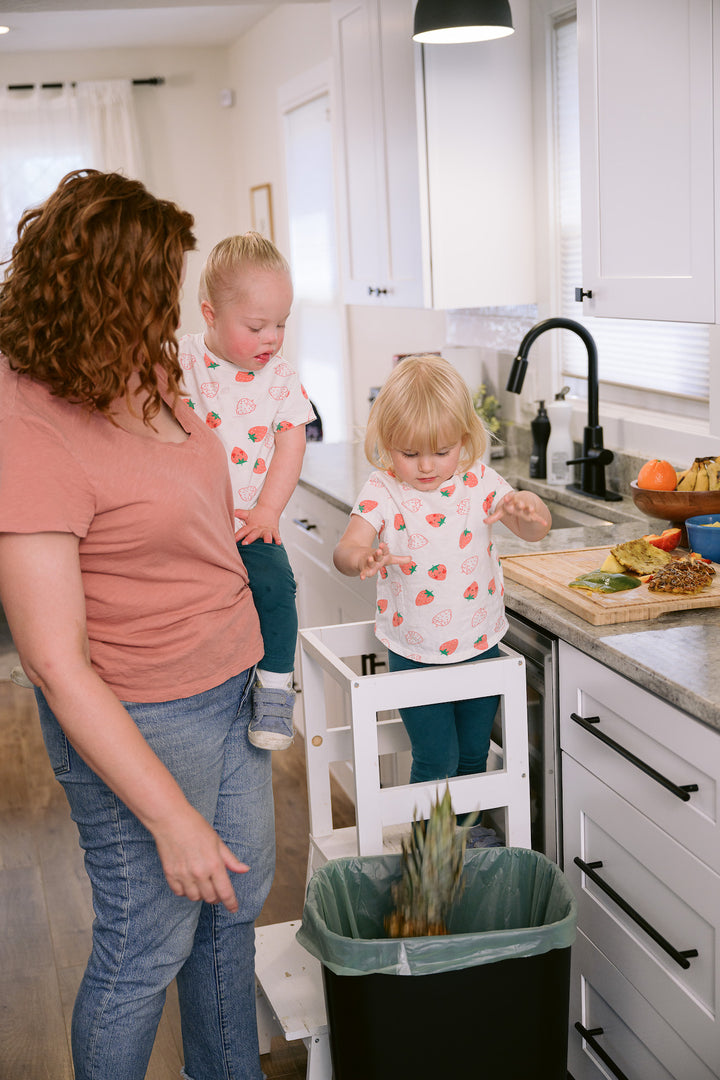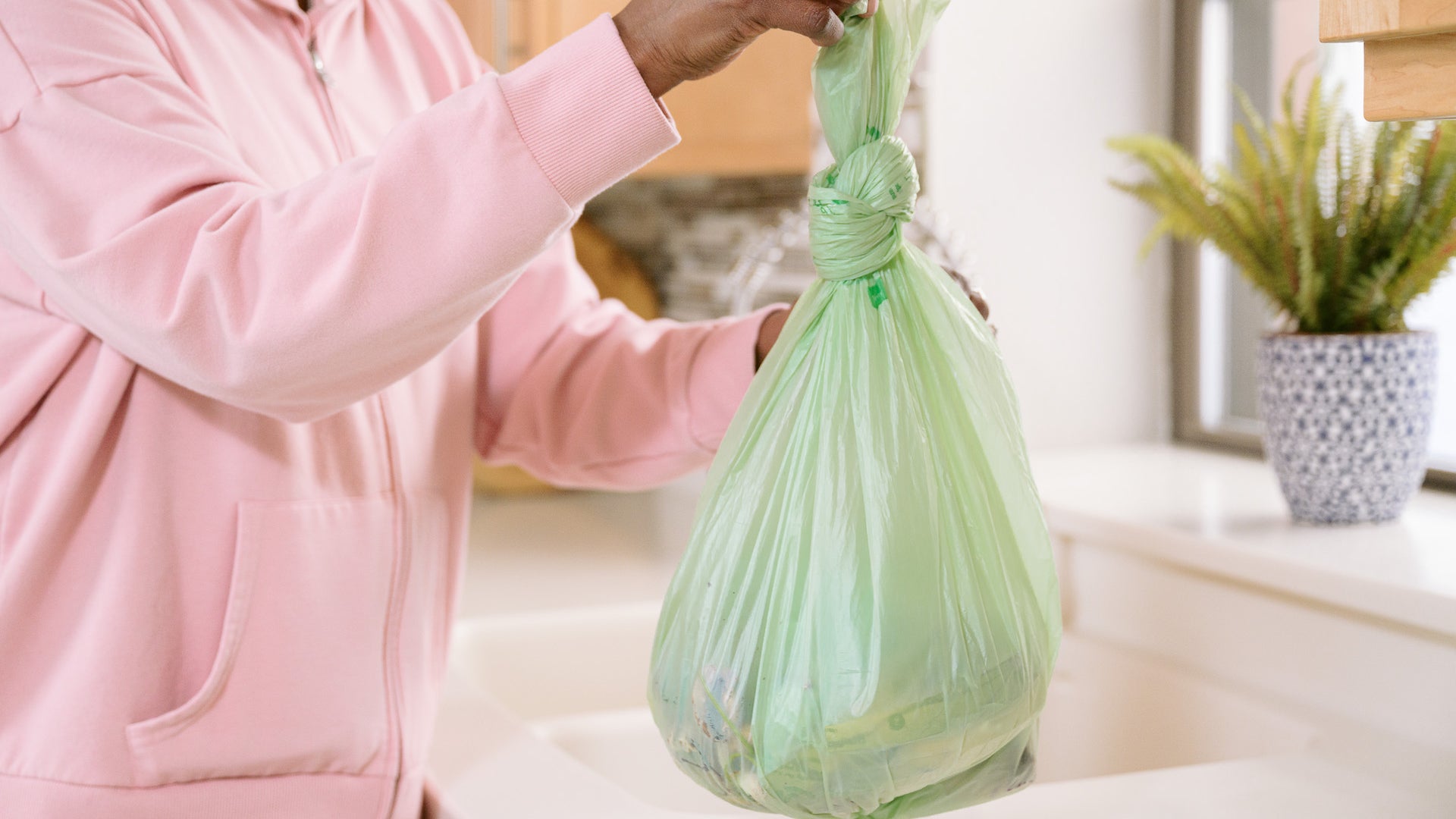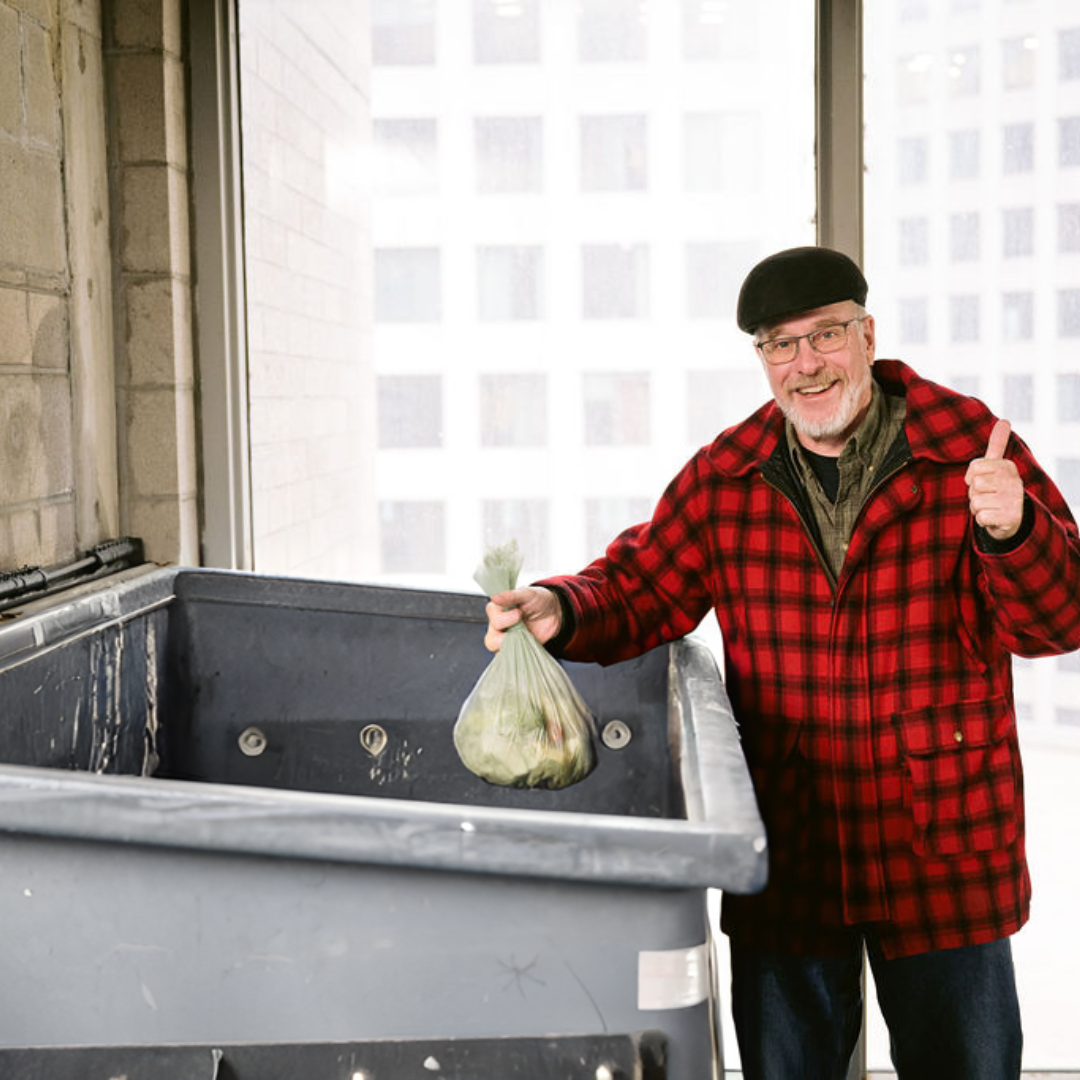Order your free annual supply of food scrap bags.
Do not use other compostable bags—the bags provided by Ramsey and Washington counties are designed specifically for this program.
Collect your food scraps in the food scrap bags. Once a week or when the food scrap bag is full, tie a knot at the top to close the bag.
Tie the top of the bag like you would tie a balloon. This type of knot is best for keeping the bag sealed.
Place your food scrap bag inside your trash cart or dumpster for collection.
- Do not put the food scrap bags inside a regular trash bag.
- Do not place them in your recycling.
- Do not place them on top of or next to your trash cart or dumpster—they should go inside.
Done! The food scraps will be composted.
After collection, the food scrap bags are separated from the trash and brought to an industrial compost facility.

